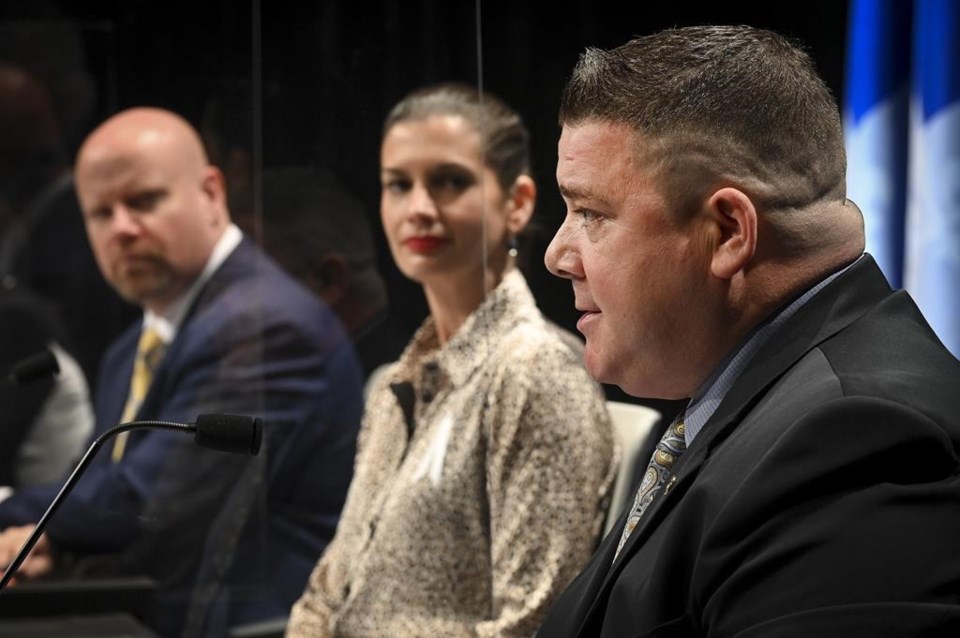QUEBEC — The Quebec government says it will spend $18.6 million over the next five years to improve policing in Indigenous communities.
Among the measures announced at a press conference Friday is funding to enable members of Indigenous police services to stay in their communities while taking specialized training courses around conjugal violence and sexual assault investigations.
Currently those courses are only offered at the provincial police academy.
Shawn Dulude, the chief of the Akwesasne Mohawk Police Service and a vice-president of the First Nations Chiefs of Police Association, said that many of Quebec's 22 Indigenous police services are small.
A service with four or five officers can't afford to send one of them away for up to a month, he explained at the press conference.
The government will look at ways to deliver the training in communities, and in the languages that Indigenous police officers speak, Public Security Minister Genevieve Guilbault said.
Dulude said the training will allow Indigenous police services to investigate crimes such as sexual assaults in their communities without having to call for support from the provincial police. "We want to be equal" with other police services, he said.
Guilbault said the province will also fund basic police training for up to 24 members of Indigenous communities a year and take steps to encourage more people from those communities to consider a career in policing.
Currently between 18 and 23 people from Indigenous communities graduate from Quebec's police academy every year — just over three per cent of graduates, Guilbault said. But Indigenous police services struggle with recruitment and retention. Many officers leave for police services in large cities or the provincial police, which offer better pay and benefits, Dulude said.
The unique challenge of policing a small community where officers are often related to many residents can also contribute to burnout, he added.
“You may be called for a conjugal violence at a home where it’s your cousin that’s the suspect, it could be your cousin that’s the victim," he said. "You can’t say I’m going to give the call to somebody else, because there’s nobody else. Often you’re alone with your partner working that shift."
Dulude said he's optimistic about future negotiations with Quebec City and Ottawa around funding. Currently, Indigenous police services in Quebec receive 52 per cent of their funding from the federal government and 48 per cent from the province.
In an additional measure, all members of the province's correctional service will receive training on the realities faced by Indigenous people, Guilbault said.
The funding announced Friday comes after an inquiry overseen by retired judge Jacques Viens issued a damning report last year on the relationship between public servants in Quebec and Indigenous people. Guilbault said the announcement responds to several of the recommendations made in Viens' report.
That inquiry was launched after a number of Indigenous women in Val-d'Or, Que., accused police of sexual assault and other forms of abuse.
A report released in October on the provincial police watchdog's investigation into those allegations found that since the women came forward in 2015, more than 200 investigations have been opened into allegations of police misconduct toward Indigenous people. Le Devoir reported Friday that the complaints have led to charges against 17 police officers.
On Friday, Ian Lafreniere, Quebec's minister responsible for Indigenous relations, said the fact that people are making formal complaints is a sign they have confidence in the system. Guilbault said that small number of charges that have resulted from investigations by the police watchdog is not necessarily a sign of how the agency is performing.
This report by The Canadian Press was first published Dec. 4, 2020.
— Written by Jacob Serebrin in Montreal
———
This story was produced with the financial assistance of the Facebook and Canadian Press News Fellowship.
The Canadian Press

